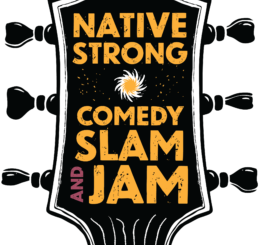Okay, class, time for number four … my fourth lesson in “How to Be a Hospitality Pro … or, How I Became One in My Spare Time.”
You may remember from my last three articles, “The Hospitality Professional: Part One, Two and Three,” that a Hospitality Pro is far different from a hospitality worker. A hospitality worker works in the hospitality industry. But a pro is something different. Let’s go over the definition once again.
Hospitality is defined as … to create an enriching and sustaining environment for others.
And professional is defined as … one who through long years of study, preparation and experience has become an expert in a particular subject or field of endeavor.
So a hospitality professional is … one who through long years of study and experience has become expert in the act of creating a sustaining and enriching environment for others.
No matter what the level, from frontline to supervisor, from executive to vice president, if you wanna be great, then you got to be a professional (and I know many of you are, whether you knew it or not).
I’ve written about a Hospitality Pro’s pre-shot routine and ability to em-pa-the-tize. Our third lesson spoke to an intrinsic desire to set the example by walking the talk in everything you do. So, without further ado, the next item on our checklist of professional skills for the Hospitality Pro: Build better.
To be one of the truly great hospitality professionals of our industry you need to have an innate and inbred desire to build better.
To create the change that you want to see in other people, your organization and, yes, even in the world as a whole.
Hospitality professionals want to make things better, build and develop other people, improve systems and share that knowledge with others. It is the sustaining part of our definition, as in making a sustaining contribution to whatever you touch or influence.
It is the manager who freely shares knowledge with others. The mentor who helped set you on the path you’re on today, who helped you be successful, sometimes at the expense of their own comfort or advancement. I am not just speaking about setting an example, as I wrote of in the last article. No, this is different. This is about sharing, teaching, questioning, improving, seeing and meeting the challenge in everything you put your hand to.
Others have spoken of it before. Tom Peters, the management guru of the latter part of the last century and author of In Search of Excellence, spoke of WOW! Projects, and how you should take every mundane task or assignment that you are given and try to turn it into an impactful, fundamental, change-the-way-we-do-business-around-here WOW! Project.
Remember When Sharing Wasn’t Part of Our Industry Culture?
I remember, oh so long ago, when I was just a pup in this industry, how we never openly shared or even talked to the “other guy,” the other casinos or properties in our industry. They were the enemy, and you don’t give up your secrets to the enemy. Today’s multitude of gaming shows would not have been possible then because no one was willing to give up their hard-earned knowledge and secrets. They kept them in-house.
I remember being instructed by the ivory-tower executives and gaming managers about how to clandestinely perform a headcount at a competitor’s property across the street. Go over and count heads, they would say, but keep your own head down. Don’t talk to anybody and don’t let them guess what you’re doing. If you get thrown out, don’t admit what you were doing. Be a spy, be sly and don’t get caught.
But we on the floor knew better. We floor supervisors and boxmen and shift leads. We laughed secretly at their possessive natures while we freely spoke to one another and shared headcounts and other items deemed taboo by the powers in charge. (BTW, I am not talking about sharing guest databases; after all, some things will always be sacrosanct). And I like to think that we changed the industry, brought it out into the open and questioned all the old ways of doing things.
A Rising Tide Floats ALL Boats
I do not believe that Raving would even exist if we had not changed the culture of our industry and opened up everyone to the idea that a rising tide floats all boats. That we have an obligation to share what we can to build a better property, a better product, a better industry for all who share in it, from our frontline workers to our managers and executives, and even the players who look to us for a life-affirming entertainment experience.
Having spent just over half of my 43-year career in gaming as a consultant trying to build better and share all the lessons learned, I now try to ascertain which side of the equation each client I work with is on. Are they secretive? Paranoid? Do they hold everything close to the chest and interact with others with suspicion and distrust? Or are they open and trusting? Eager to share and learn and question? Are they truly committed to developing their people or just interested in using them to get an end result? To achieve only their goals and aims?
I think of all the shining examples of that which I speak, like Barona, which freely shared their incredible formula because they understood that knowledge is freedom and the true power of it is not what you know but HOW you use it, implement it and engage with it. Other examples from other industries come to mind as well, like Southwest and Disney. Companies that not only redefined their industries, but shared the knowledge in the hopes of building better.
So how do you practice building better? Well, here’s a list to help get you started:
- You build better when you commit to developing your people with as much or more fervor as you chase the money.
- You build better when you question every process, procedure and rule, looking to change them to make other people’s lives easier, better, more powerful.
- You build better when you share your power and invite others to drink from it.
- You build better when you help train a new team member the right way, even though it is not really your job.
- You build better when you set high expectations and then insist that others achieve them.
- You build better when you refuse to accept mediocrity and things being “good enough.”
- You build better when you volunteer your own time and resources to others’ projects and challenges.
- You build better when you stop doing the stupid stuff just because that’s the way we do it.
- You build better when you inculcate in yourself, and those around you, a burning desire to get a little bit better every day.
So ask yourself, what did I improve today? Who have I committed to mentoring in my organization? What have I learned? What have I shared with my people, my organization, my industry? What am I doing every day to build better?
Because when you commit yourself to building better … then you become better.
And the world becomes a better place.
I guarantee it.





